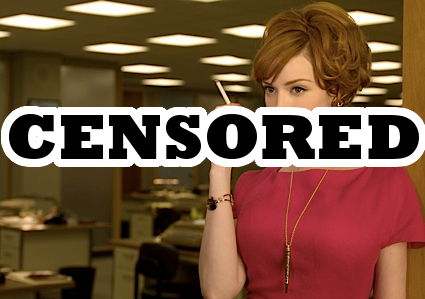Today both CunningLinguist and Capt. Badass wrote a post about the Stop Online Piracy Act (SOPA) hearings taking place in Congress. I thought I would combine them both so we can get a good look at this act and what it means for you internet types. This is important. Read and click on the links.
From CL:
PROTECT IP Act Breaks The Internet
Worst case scenario? You can go to jail for five years for uploading that video of you dancing to “Rhythm Nation.” Seriously. Creating a gif from your favorite episode of Mad Men? Illegal. Sexy photos of Ryan Gosling from Drive? So illegal.
There is a Congressional hearing today with the speakers unfortunately stacked pro-SOPA five-to-one. A letter written and signed by big tech names like Google, eBay, AOL (lol sorry guys, hard to keep a straight face here), Facebook, Twitter, and others asked Congress to reconsider such harsh actions. This probably explains why the hearing today started with pro-SOPA politicians on the defensive.
This bill would hold our darling admins here at Crasstalk responsible for shitty gifs and movie pictures and video clips that the commenters post. Facebook would have to censor you from posting anything that might break copyright laws. In fact, entire websites could be blocked (and how could I imagine life without Tumblr?).
Please, please, write to your Congresspeople. Or call, even!
You can read the full text of Protect-IP here, and the full text of SOPA here.
From Capt. Badass:
There is a new law being tossed around and debated within the hallowed halls of the US Congress. It is called the Stop Online Piracy Act, or SOPA for short. There are two major factions in the debate. First, there are the critics, some who claim that it will cause “The Great US Firewall” similar to China’s internet control. On the other side, there are supporters, who think that everyone on the internet is running around with shopping carts to steal ALL the content.
Basically, what they’re trying to make happen is to require Internet providers to block access to the sites, search engines to remove links from search results, payment intermediaries such as credit card companies and Paypal to cut off financial support, and Internet advertising companies to cease placing advertisements on any website ‘dedicated to the theft of U.S. property.’
I’m not a lawyer, so if any of you guys can judge the language better, let me know. Here are a few of the things this law will change:
1 – It defines a ‘domestic domain name’ and one that will be under the control of this law as a domain name “that is registered or assigned by a domain name registrar, domain name registry or other domain name registration authority, that is located within a judicial district of the United States. That is every single dot-com, dot-net, and dot-org domain. You could be a website owner living in Japan doing business in Australia with a .com domain name and be subject to these US laws.
2 – It defines “domestic Internet protocol addresses” as “an IP address for which the corresponding IP allocation entity is located within a judicial district of the United States.” IP addresses are assigned by regions, not nations. The US, Canada, and many Caribbean nations are given out by the same entity, located in the US. So any IP address in Canada or these tens of Caribbean states is now treated as domestic for US law. There are a fuckload of you Canadians who will be affected here.
3 – The bill will grant “in rem” jurisdiction on any website that doesn’t have a domestic connection. So, while they can’t shut down your website, the US government will require all domestic service providers to block the site and all domestic search engines to take it out of their registries. Then if you want to challenge the court order, the owner of the website must consent to the jurisdiction of the US courts.
4 – It puts it into law that as a component of US foreign policy the US embassies will increase their involvement in foreign legal reform to defend US intellectual property.
5 – It will place into law broad reforms that open up liabilities to currently law-abiding websites and companies. It requires more monitoring technology to be implemented than currently exists. It will override the Digital Millennium Copyright Act that has been working extremely well since 1998.
Also, just as a fun fact, my parents live in Lamar Smith’s district. The house is holding hearings and will have representatives from Hollywood, Chamber of Commerce and Big Pharma companies testifying. The opponents, tech companies (Google, Facebook, Twitter, Ebay, Mozilla), free speech and human rights activists, and individual internet users won’t be there.
